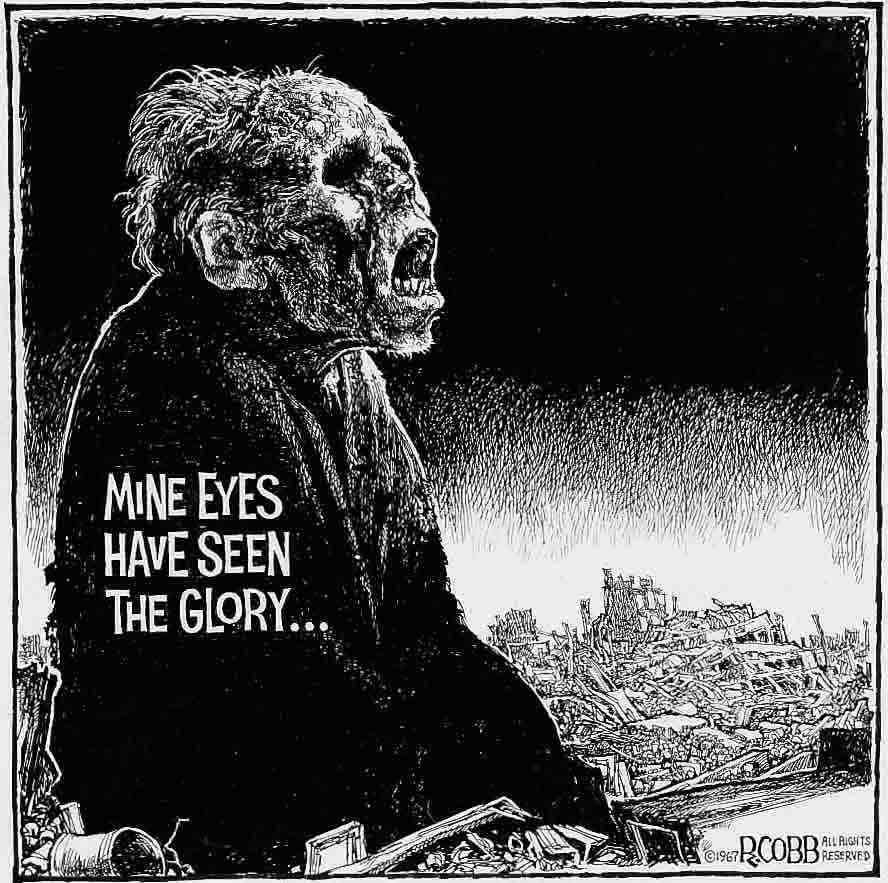
John Sinclair has just left us:
THE MUSIC IS THE SOURCE AND EFFECT OF OUR SPIRIT FLESH. The MCS is the
source and effect of the music, just as you are. Just as I am. Just to hear the music
and have it be ourselves is what we want…WE ARE A LONELY DESPERATE PEOPLE
PULLED APART BY THE KILLER FORCES OF CAPITALISM, AND COMPETITION AND
WE NEED THE MUSIC TO HOLD US TOGETHER. SEPARATION IS DOOM. We are free
men and we demand a free music, a free high energy source that will drive us wild
into the streets of America yelling and screaming and tearing down everything
that would keep people slaves.
The MC5 is that force. The MC5 is the revolution in all its applications. THERE IS
NO SEPARATION. EVERYTHING IS EVERYTHING. THERE IS NOTHING TO FEAR…The
MC5 is here now for you to hear and see and feel now! Give it up, come together,
get down…what you have here is a testimonial to the ABSOLUTE POWER AND
STRENGTH OF THESE MEN. GO WILD! THE WORLD IS YOURS! TAKE IT NOW AND BE
ONE WITH IT! KICK OUT THE JAMS, MOTHERFUCKERS! AND STAY ALIVE WITH THE
MCS!
I’m reading the Maniac by Benjamin Labatut: “He had a burning vision, an inner fire that I never felt.”
Walter Benjamin instructs:
The Writer’s Technique in Thirteen Theses
- I. Anyone intending to embark on a major work should be lenient with himself and, having completed a stint, deny himself nothing that will not prejudice the next.
- II. Talk about what you have written, by all means, but do not read from it while the work is in progress. Every gratification procured in this way will slacken your tempo. If this regime is followed, the growing desire to communicate will become in the end a motor for completion.
- III. In your working conditions, avoid everyday mediocrity. Semi-relaxation, to a background of insipid sounds, is degrading. On the other hand, accompaniment by an étude or a cacophony of voices can become as significant for work as the perceptible silence of the night. If the latter sharpens the inner ear, the former acts as touchstone for a diction ample enough to bury even the most wayward sounds.
- IV. Avoid haphazard writing materials. A pedantic adherence to certain papers, pens, inks is beneficial. No luxury, but an abundance of these utensils is indispensable.
- V. Let no thought pass incognito, and keep your notebook as strictly as the authorities keep their register of aliens.
- VI. Keep your pen aloof from inspiration, which it will then attract with magnetic power. The more circumspectly you delay writing down an idea, the more maturely developed it will be on surrendering itself. Speech conquers thought, but writing commands it.
- VII. Never stop writing because you have run out of ideas. Literary honor requires that one break off only at an appointed moment (a mealtime, a meeting) or at the end of the work.
- VIII. Fill the lacunae in your inspiration by tidily copying out what you have already written. Intuition will awaken in the process.
- IX. Nulla dies sine linea [“Not a day without a line”]—but there may well be weeks.
- X. Consider no work perfect over which you have not once sat from evening to broad daylight.
- XI. Do not write the conclusion of a work in your familiar study. You would not find the necessary courage there.
- XII. Stages of composition: idea—style—writing. The value of the fair copy is that in producing it you confine attention to calligraphy. The idea kills inspiration; style fetters the idea; writing pays off style.
- XIII. The work is the death mask of its conception.
James Baldwin wrote “I can’t believe what you say,” the song goes, “because I see what you do.” This is the song:
Now I can close some tabs.